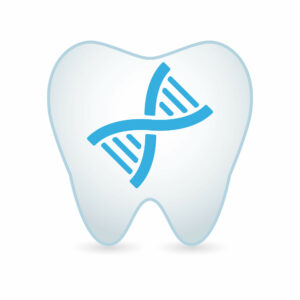Dentists often come across patients who have impacted wisdom teeth, which is a condition where the back molars fail to emerge properly.
It is important to understand the causes of this issue, which can range from insufficient space in the jaw to misaligned growth patterns. The risks associated with impacted wisdom teeth include infection, damage to adjacent teeth, and potential cyst formation.
Therefore, timely treatment options are emphasized by dentists, which can vary from monitoring to surgical removal depending on the severity and symptoms presented by the patient. This ensures that oral health is maintained and future complications are mitigated.
This post will cover the causes, risks, and treatments for impacted wisdom teeth. Whether you’re dealing with this issue or seeking information, BellaVista DentalCare will provide essential insights for understanding and managing this dental condition
Understanding the Causes of Impacted Wisdom Teeth
Impacted wisdom teeth are not at all too rare. They are a prevalent dental concern, affecting a significant portion of the population at some point in their lives. This condition occurs when wisdom teeth, the last set of molars to develop, fail to emerge properly and become lodged against other teeth or the jawbone.
Several factors contribute to this phenomenon. Understanding these causes is crucial for early detection and effective management, thereby minimizing potential complications and ensuring better oral health outcomes.
Genetic Factors
Dentists often point to genetics as a primary cause of impacted wisdom teeth. Some people inherit smaller jaws with insufficient space for all their teeth. When wisdom teeth, the last to emerge, try to grow in, there’s no room. This leads to impaction.
Genetic predisposition can also mean that one is more likely to have complications like incisor crowding or misaligned teeth. These issues further reduce space in the mouth, making impaction more probable.
Modern Diets
Changes in diet over time play a role too. Modern foods are softer and less challenging to chew than those of our ancestors. As a result, humans today may develop less robust jawbones and muscles, which could contribute to dental problems, including impacted wisdom teeth.
Some researchers argue that because we don’t strain our jaws as much anymore, they might not develop fully or correctly. This underdevelopment can leave inadequate space for all 32 adult teeth, leading some of them—often the wisdom teeth—to become impacted.
Preventive Measures
To avoid potential problems associated with impacted wisdom teeth, like gum disease, dentists recommend regular check-ups from adolescence onward.
During these visits:
- They monitor tooth development.
- Identify early signs of impaction.
- Discuss preventive strategies.
Early detection through X-rays can reveal if there’s enough room for these back molars before they even start causing trouble or pain.
Recognizing Symptoms and Signs of Impaction
Impacted wisdom teeth can often go unnoticed until they start causing problems. Recognizing symptoms and signs of impaction will provide you with telltale signs to look out for.
Common Indicators
Dentists often find that patients with impacted wisdom teeth experience a range of symptoms.
One common sign is pain in the back of the mouth, which can sometimes extend towards the ear. This kind of ear pain might confuse individuals, as they may not connect it to dental issues at first.
Swelling around the jaw area is another indicator dentists note when diagnosing impaction. The swelling can cause discomfort and difficulty with mouth movements, such as opening or chewing. Patients must recognize these signs early on to prevent further complications.
Types and Complications of Wisdom Tooth Impaction
Understanding the different types of wisdom tooth impaction is important for effective treatment and prevention strategies. This section highlights the importance of early detection and management to avoid serious oral health issues that can arise from untreated impactions.
Impaction Varieties
Dentists classify impacted wisdom teeth based on their alignment in the jaw. Horizontal impactions occur when the tooth grows sideways, pressing against neighboring teeth. This can cause damage to adjacent molars. Another type is vertical impaction, where the tooth cannot break through the gum line due to a lack of space.
They also see mesial impactions, with the tooth angled towards the front of the mouth, and distal impactions, angled towards the back. Each type presents unique challenges and may influence treatment decisions.
Complications
The most common is an infection, as bacteria can thrive around a partially erupted tooth, leading to painful swelling known as pericoronitis. Dentists warn that cysts or tumors may form around an impacted tooth, potentially damaging bone and gum tissue.
Another risk includes crowding of nearby teeth, which might necessitate orthodontic treatments later on. They stress that timely diagnosis is crucial for minimizing these risks.
Treatment Options for Impacted Wisdom Teeth
From non-invasive methods to surgical interventions, this section outlines the range of treatments tailored to the severity and type of impaction, guiding you toward making informed decisions for optimal dental health.
Consultation Stage
Dentists assess the condition of impacted wisdom teeth. They consider factors like pain, infection, and damage to adjacent teeth. A thorough examination often includes X-rays to determine the position of the impacted tooth.
Patients learn about risks and treatment options during this stage. Dentists explain potential complications if the issue is not addressed. This helps patients make informed decisions about their oral health.
Surgical Removal
One of the most common treatments for impacted wisdom teeth is surgical removal. Dentists or oral surgeons perform this procedure under anesthesia to ensure patient comfort.
After making an incision in the gums, they remove bone that blocks access to the tooth root. Then they extract the tooth, sometimes in pieces for easier removal. Post-surgery care involves rest and following a dentist’s instructions closely.
Alternative Treatments
In some cases, dentists may suggest alternative treatments if surgery isn’t suitable due to medical reasons or personal preference. Options include monitoring with regular check-ups or medication to manage symptoms without surgery.
However, these alternatives may not address underlying issues caused by impacted wisdom teeth long-term.
Risks and Prevention of Wisdom Tooth Surgery
Dentists warn that wisdom tooth surgery can have risks. These include infection, nerve damage, or a dry socket where the tooth was removed. Not everyone will face these issues, but they are possible.
In some cases, patients might develop caries in nearby teeth if an impacted wisdom tooth pushes against them. This is because it’s harder to clean areas where teeth are crowded. Regular checkups help spot such problems early on.
To lower the risk of complications, dentists advise good oral hygiene before and after surgery. They stress the importance of following post-operative instructions closely.
They also suggest using mouthwash and avoiding certain foods that could harm the surgery site. By doing so, patients can support their healing process effectively.
Post-Surgery Care and Recovery
After removing impacted wisdom teeth, dentists emphasize the importance of proper care. They guide patients through a healing protocol to ensure the best outcome.
The first 24 hours are crucial for forming a blood clot in the surgery area. Patients must avoid activities that could dislodge this clot, like drinking from straws or spitting forcefully.
Dentists also advise against smoking and alcohol, as these can hinder recovery. Maintaining oral hygiene gently is key to preventing an infection, which dentists warn could complicate healing.
Managing Discomfort
Post-operative discomfort is common but manageable with guidance from health professionals. Dentists often prescribe pain relievers and recommend cold compresses to help control swelling around the jaw.
They may suggest eating soft foods and avoiding hot beverages immediately after surgery. Following these steps not only offers comfort but also aids in a quicker recovery without complications.
Closing Thoughts
Dentists emphasize that understanding the causes and recognizing the symptoms of impacted wisdom teeth are crucial steps in preventing complications. They advocate for early intervention, which can range from monitoring to surgical removal, depending on the type and severity of the impaction.
While treatment options are well-established, they carry inherent risks; hence, practitioners prioritize patient education on prevention and post-surgery care to optimize recovery. The collective knowledge presented underscores the importance of a proactive approach to dental health, particularly concerning wisdom teeth.
If you are experiencing or concerned about impacted wisdom teeth, you can speak with BellaVista DentalCare. We can provide personalized advice and treatment plans tailored to individual needs.
Remember, maintaining regular dental check-ups can help catch potential issues early, ensuring a healthier smile and overall well-being.
Contact us today to schedule an appointment.
Frequently Asked Questions
-
What causes impacted wisdom teeth?
Impacted wisdom teeth occur when there isn’t enough space in the jaw or the teeth emerge at an angle, preventing them from fully erupting.
-
How do I know if my wisdom tooth is impacted?
Symptoms of impaction include pain, swelling, gum tenderness, and difficulty opening your mouth. Sometimes impactions are asymptomatic and identified through dental X-rays.
-
What types of complications can arise from impacted wisdom teeth?
Complications may include infection, damage to adjacent teeth, cyst formation around the tooth, and potential alignment issues with other teeth.
-
What are the treatment options for an impacted wisdom tooth?
Treatment typically involves the surgical removal of the affected tooth. In some cases where symptoms are absent or minimal, monitoring may be recommended.
-
Are there risks associated with wisdom tooth surgery?
Yes. Risks include dry sockets and nerve damage resulting in numbness or tingling sensations; however, these complications are relatively rare with experienced oral surgeons.
-
How can I prevent problems with my wisdom teeth?
Regular dental check-ups allow for early detection and management, which can help prevent problems. Maintaining good oral hygiene also reduces the risk of infection.
-
What does post-surgery recovery involve for wisdom tooth extraction?
Recovery includes rest, managing swelling with ice packs, avoiding strenuous activity, a soft diet, proper oral hygiene, and following a surgeon’s instructions on medication use.



